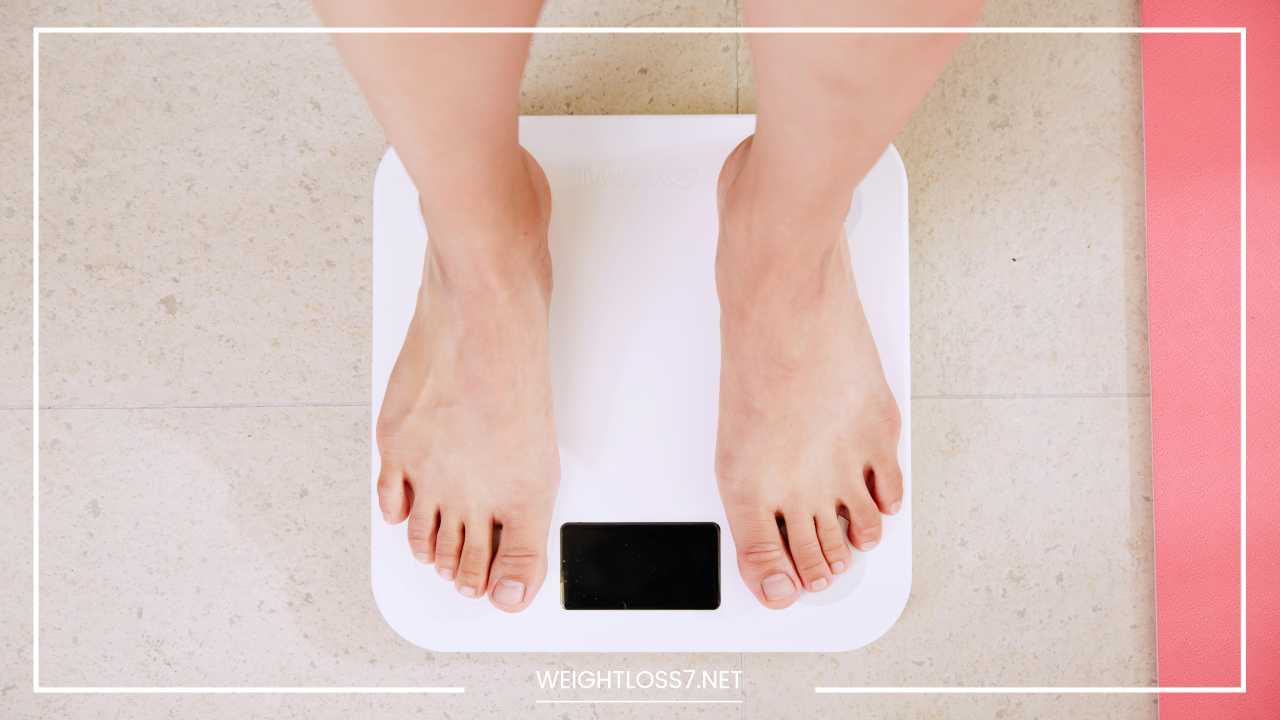Moderate Weight Loss Offers Prolonged Benefits

Moderate Weight Loss
Moderate Weight Loss Offers Prolonged Benefits: A Sustainable Approach to a Thriving Life
In the age of fads and quick fixes, achieving lasting weight loss can feel like chasing a mirage. We’re bombarded with unrealistic expectations and promises of overnight transformations, leaving us disillusioned and frustrated.
But what if the key wasn’t in drastic measures or deprivation, but in a sustainable, moderate approach that prioritizes long-term health and well-being?
The good news is, even modest weight loss can offer significant and prolonged benefits that ripple through every aspect of your life. Let’s delve deeper into why focusing on moderate weight loss might be the smartest path to a healthier, happier you.
Why Go Moderate? The Detriments of Drastic Measures
Crash diets and extreme calorie restriction might seem like shortcuts to your dream body. However, these approaches are often counterproductive. Here’s why:
- Nutrient Deficiencies: Severe calorie restriction can deprive your body of essential vitamins and minerals, leading to fatigue, hair loss, and weakened immunity.
- Muscle Loss: When your body doesn’t receive enough calories, it starts to break down muscle for energy. This not only reduces your metabolism but also weakens your strength and endurance.
- The Yoyo Effect: Crash diets are notoriously unsustainable. The body reacts to drastic calorie restriction by slowing down metabolism, making it harder to maintain weight loss. Once you return to your old eating habits, the weight often comes back with a vengeance.
The Power of Modest Change: A Look at the Long-Term Benefits
Moderate weight loss, on the other hand, prioritizes healthy habits you can integrate into your life for the long haul.
Aiming for a 5-10% reduction in body weight over a 6-month period is a realistic and achievable goal. This translates to losing 1-2 pounds per week, a pace that allows your body to adjust and promotes lasting success.
Now, let’s explore the incredible benefits you can experience with this sustainable approach:
- Improved Blood Sugar Control: Losing weight can significantly enhance your body’s ability to manage blood sugar levels. This is particularly beneficial for those at risk of or living with type 2 diabetes. By improving insulin sensitivity, your body needs less insulin to keep blood sugar in check, reducing the risk of future complications.
- Reduced Risk of Heart Disease: Excess weight puts a tremendous strain on your heart. Moderate weight loss can significantly reduce your risk of developing heart disease in several ways. It can lower your blood pressure, improve cholesterol levels by decreasing LDL (bad) cholesterol and increasing HDL (good) cholesterol, and decrease inflammation throughout the body – all factors that contribute to a healthier heart.
- Enhanced Joint Health: Overweight individuals carry more stress on their joints, leading to pain and limited mobility. Losing weight alleviates this stress, reducing pain and inflammation in joints like your knees, hips, and back. This can significantly improve your mobility and make it easier to participate in activities you enjoy.
- Boosted Sleep Quality: Obesity is a known risk factor for sleep apnea, a condition that disrupts sleep patterns and leaves you feeling exhausted. Moderate weight loss can improve sleep quality by reducing the pressure on your airways and allowing for deeper, more restful sleep. This translates to increased energy levels throughout the day and better overall well-being.
- Mental Health Benefits: The impact of weight loss extends beyond the physical. It can positively impact mental health by improving mood, self-esteem, and body image. Achieving weight loss goals can boost confidence and motivation, leading to a more positive outlook on life. Additionally, the healthy habits adopted during weight loss often translate into better stress management skills and improved emotional regulation.
Making it Sustainable: Building Habits for a Thriving Life
The key to reaping the long-term benefits of moderate weight loss lies in creating sustainable habits. Here’s a roadmap to guide you on your journey:
- Focus on Whole Foods: Prioritize whole, unprocessed foods like fruits, vegetables, whole grains, and lean proteins in your diet. These foods are packed with nutrients that keep you feeling full for longer and provide your body with the building blocks it needs for optimal health.
- Embrace Portion Control: Don’t just rely on calorie counting. Practice mindful eating and use smaller plates to avoid overconsumption. Learn to measure out servings and avoid mindlessly snacking. Pay attention to hunger cues and stop eating when you’re comfortably full, not stuffed.
- Incorporate Regular Exercise: Aim for at least 150 minutes of moderate-intensity exercise or 75 minutes of vigorous-intensity exercise per week. The good news is, you don’t need to spend hours at the gym. Find activities you enjoy, whether it’s brisk walking, swimming, dancing, cycling, playing a sport, hiking, gardening, or even chasing your kids around the park! There are countless ways to get your body moving and reap the benefits of exercise.
- Find activities you enjoy: From brisk walking, swimming, or dancing to cycling, yoga, or team sports – there’s an exercise option for everyone. Choose activities that fit your interests and schedule. Consistency is key, so find something you’ll look forward to doing.
- Stay Hydrated: Drinking plenty of water throughout the day is crucial for weight loss and overall health. Water helps curb cravings, boosts metabolism, aids in digestion, and keeps you feeling energized. Aim for eight glasses of water daily, adjusting based on your activity level and climate.
- Mindful Eating: Pay close attention to your eating habits. Eat slowly, savor your food, and avoid distractions like screens while eating. This allows you to connect with your body’s hunger cues and feel satisfied with smaller portions.
- Find Your Support System: Surround yourself with positive and supportive people who encourage your healthy lifestyle choices. This could be a partner, family members, friends, or a weight loss support group. Having a supportive network can make a significant difference in your motivation and adherence to your goals.
- Celebrate Non-Scale Victories: Don’t just focus on the number on the scale. Celebrate improvements in your energy levels, sleep quality, mood, and overall well-being. Did you have more stamina on your walk this week? Did you sleep soundly through the night? These are all victories worth acknowledging.
- Make it a Lifestyle Change: Don’t view weight loss as a temporary fix, but rather a shift towards a healthier and happier you. Embrace the journey and enjoy the process of learning about your body and what it needs to thrive.
Remember:
- Consult your doctor: Before starting any weight loss program, consult with your doctor or a registered dietitian. They can guide you based on your individual needs, health conditions, and medications you may be taking. A personalized approach is key for achieving your goals safely and effectively.
- Be Patient and Kind to Yourself: Weight loss takes time and effort. There will be setbacks along the way. The key is to be patient with yourself, learn from setbacks, and don’t get discouraged. Celebrate your progress, no matter how small, and focus on building sustainable habits for long-term success.
Beyond the Scale: Embracing a Holistic Approach
While weight loss offers numerous benefits, it’s important to remember that it’s just one piece of the puzzle for overall health and well-being. Here’s how to cultivate a holistic approach that prioritizes your long-term health:
- Focus on Quality Sleep: Aim for 7-8 hours of quality sleep each night. Sleep deprivation disrupts hormones that regulate hunger and satiety, making it harder to manage weight. Develop a relaxing bedtime routine and create a sleep-conducive environment for optimal sleep.
- Manage Stress: Chronic stress can lead to unhealthy coping mechanisms like emotional eating. Practice stress management techniques like mindfulness meditation, yoga, deep breathing, or spending time in nature. Finding healthy outlets for stress can significantly benefit your weight and overall well-being.
- Prioritize Mental Health: Mental health plays a crucial role in weight management. If you’re struggling with anxiety, depression, or other mental health challenges, seeking professional help can be transformative. Addressing your mental health can indirectly support your weight loss goals and improve your overall quality of life.
- Listen to Your Body: Learn to tune into your body’s hunger cues and satiety signals. Eat when you’re truly hungry and stop eating when you’re comfortably full. Avoid restrictive diets that encourage ignoring your body’s natural signals.
- Celebrate Non-Scale Victories: Don’t get fixated on the number on the scale. Celebrate improvements in your energy levels, mood, sleep quality, and overall physical capabilities. Did you climb those stairs without getting winded? Are you sleeping through the night for the first time in months? These are all victories worth acknowledging.
- Move Your Body Regularly: Find ways to incorporate movement into your daily routine, even if it’s just taking the stairs instead of the elevator or parking further away from your destination. Focus on finding activities you enjoy, whether it’s dancing, hiking, biking, or playing a sport. Aim for at least 30 minutes of moderate-intensity exercise most days of the week.
- Strength Training: Building muscle mass is crucial for long-term weight management. Muscle burns more calories at rest than fat, so incorporating strength training exercises 2-3 times per week can significantly boost your metabolism.
Building a Sustainable Support System
Surrounding yourself with positive and supportive people can make a world of difference in your weight loss journey. Here’s how to build a strong support system:
- Find an Accountability Partner: Having a friend or family member to partner with on your weight loss journey can provide motivation and support. Share your goals, hold each other accountable, and celebrate successes together.
- Join a Support Group: Connecting with others who are on a similar journey can be incredibly helpful. Support groups provide a safe space to share experiences, challenges, and advice.
- Seek Professional Guidance: Working with a registered dietitian or a certified personal trainer can be invaluable. They can create personalized plans, provide guidance on healthy eating and exercise habits, and offer ongoing support and motivation.
Remember:
- Be Patient and Kind to Yourself: Weight loss is a journey, not a destination. There will be setbacks along the way. The key is to learn from them, stay motivated, and keep moving forward.
- Focus on Progress, Not Perfection: Don’t get discouraged by occasional slip-ups. Focus on the progress you’ve made and celebrate your achievements, no matter how small.
- Enjoy the Journey: Embrace the process of learning about your body and developing healthy habits that will serve you for life.
Final Word: A Journey Towards a Thriving Life
Moderate weight loss is a powerful tool for achieving significant and long-lasting health benefits. By making sustainable changes to your diet and lifestyle, you can improve your physical and mental well-being, boost your energy levels, and decrease your risk of chronic diseases.
Remember, it’s not about reaching a specific number on the scale, but about creating healthy habits that empower you to take control of your health and live your best life.
Embrace the journey, celebrate your progress, and enjoy the incredible benefits that come with a healthier, happier you.
Additional Tips:
- Meal Planning and Prepping: Plan your meals and snacks for the week ahead to avoid unhealthy choices when you’re short on time or energy. Prepping healthy snacks and portioning out meals can help you stay on track.
- Stress Management: Chronic stress can contribute to weight gain. Explore stress-management techniques like yoga, meditation, or deep breathing exercises to help manage stress levels and support your weight loss goals.
- Strength Training: Incorporate strength training exercises into your routine 2-3 times per week. Building muscle mass not only increases your strength and endurance but also boosts your metabolism, helping you burn more calories even at rest.
- Cook More at Home: Cooking at home allows you to control the ingredients and portion sizes in your meals. This can help you limit unhealthy fats, added sugars, and sodium, all of which can contribute to weight gain.
By incorporating these tips and focusing on sustainable habits, you can unlock the incredible benefits of moderate weight loss and pave the way for a thriving life.

















